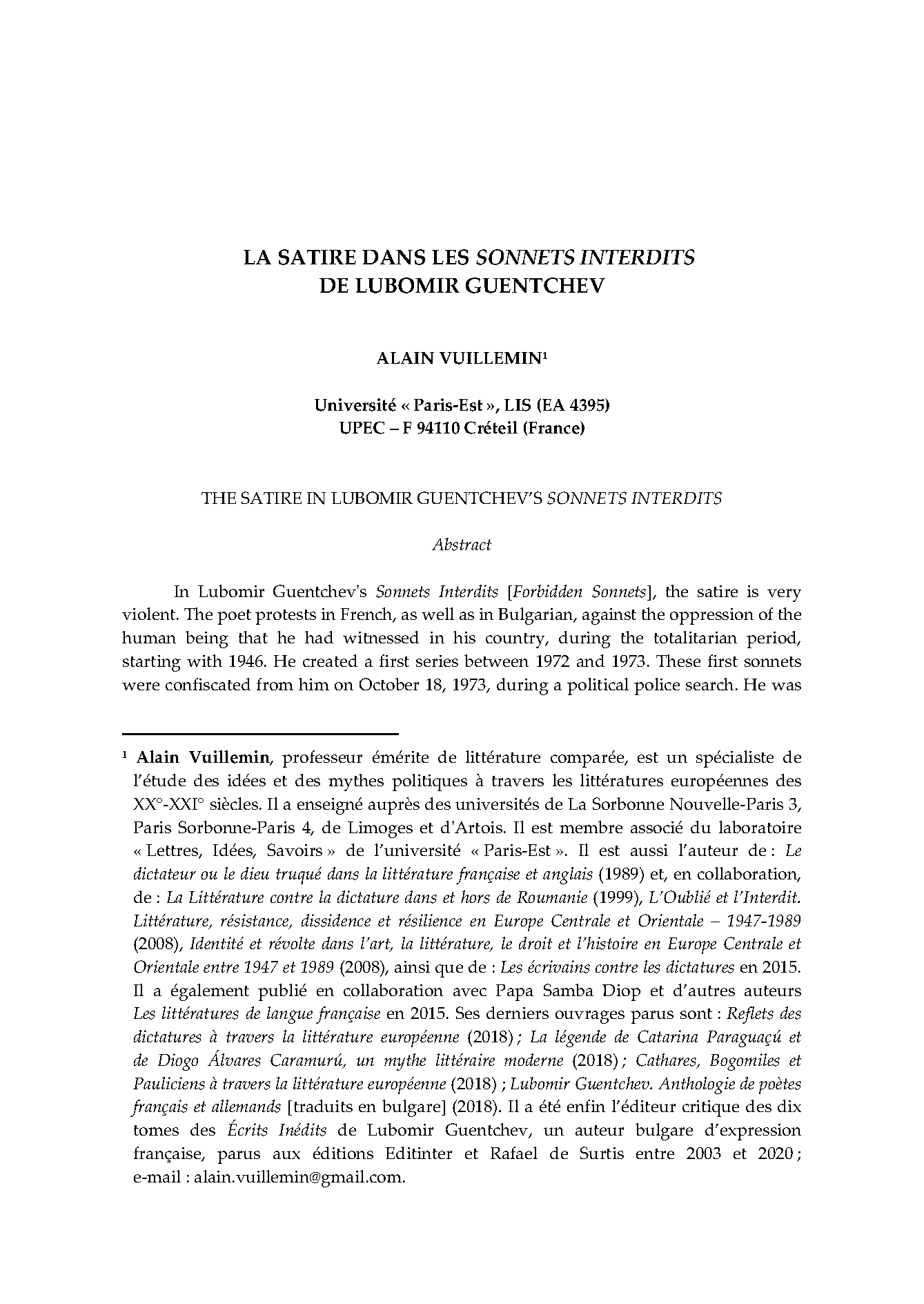LA SATIRE DANS LES SONNETS INTERDITS DE LUBOMIR GUENTCHEV
DOI:
https://doi.org/10.62229/aubllrlxxi/22/8Cuvinte cheie:
satire, totalitarianism, Bulgaria, francophone, XXth centuryRezumat
In Lubomir Guentchev's Sonnets Interdits [Forbidden Sonnets], the satire is very violent. The poet protests in French, as well as in Bulgarian, against the oppression of the human being that he had witnessed in his country, during the totalitarian period, starting with 1946. He created a first series between 1972 and 1973. These first sonnets were confiscated from him on October 18, 1973, during a political police search. He was refused their restitution. A second part of these poems was created between 1974 and 1980. They were found between 2001 and 2004, when the archives of the Bulgarian Ministry of the Interior were opened. The whole series was published in France in 2005. These Sonnets Interdits cry out his revolt against the regime established at that time in Bulgaria. The poet expresses his indignation by resorting to a virulent, vehement satire. What are the specific intentions, the targets and the means of expression?




